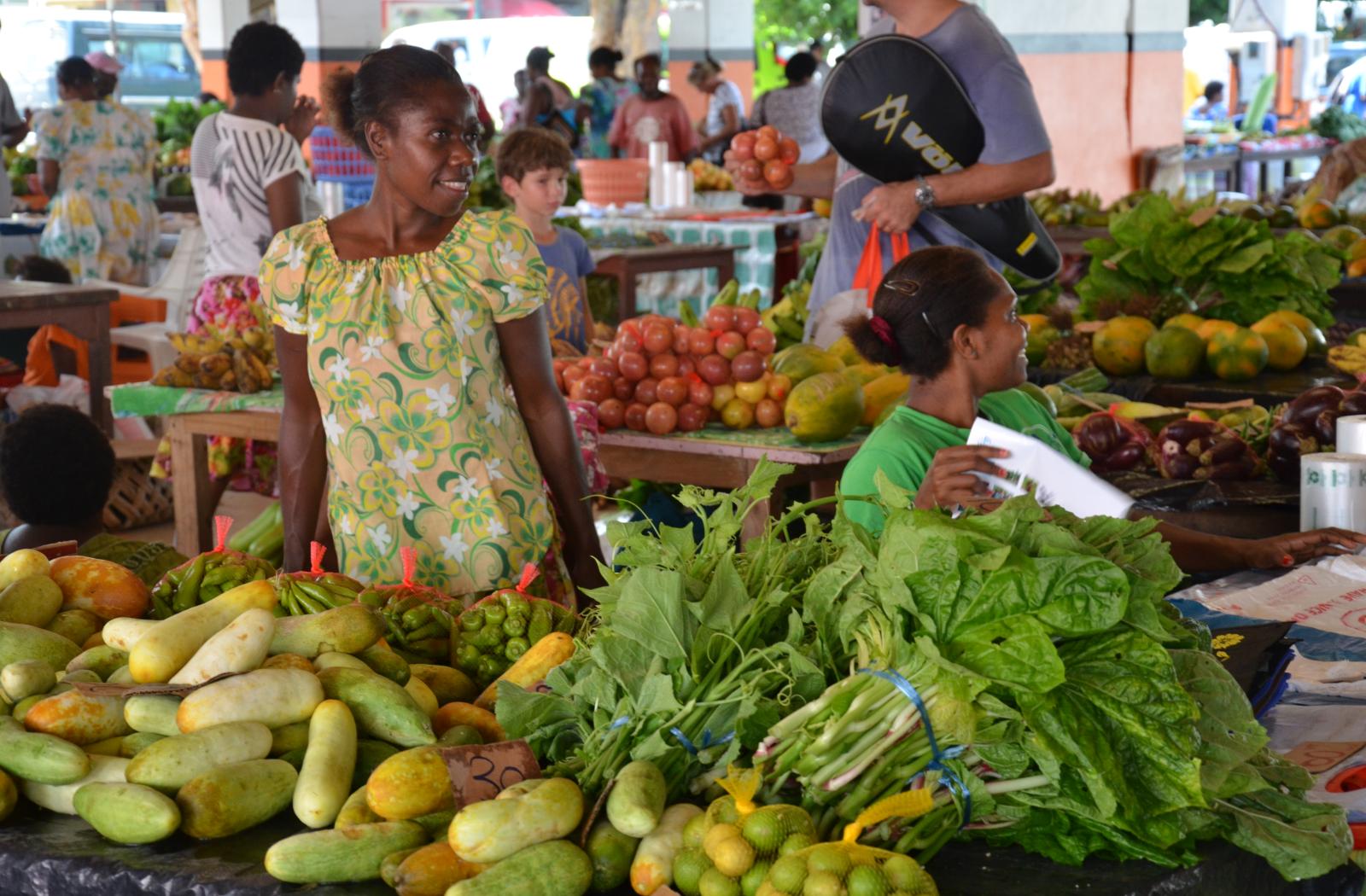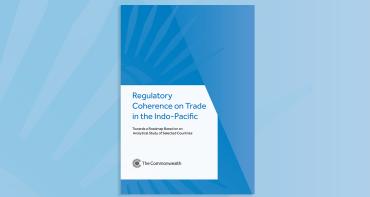The global dialogue is converging towards a new financial system that can address the ongoing challenges of countries, especially countries severely vulnerable to economic and climate risks.

Blog by: Dr Ruth Kattumuri (Senior Director, Economic, Youth Sustainable Development Division), Richard Ough (Head of Economic Policy and Small States), Motselisi Matsela (Economic Adviser, Economic Policy and Small States), Attila Shaaran (Economic Researcher, Economic Policy and Small States) and Dr Olajide Oyadeyi (Economic Researcher, Economic Policy and Small States)
The global dialogue is converging towards a new financial system that can address the ongoing challenges of countries, especially countries severely vulnerable to economic and climate risks. Several high-level events are being convened during 2023, which seek to explore long-term financing solutions to address structural vulnerabilities, one of which is the Paris Summit. The Paris summit during 22-23 June comes at a critical time, as the global economy is recovering from the COVID-19 pandemic and facing multiple crises.
Many countries are struggling to achieve the 2030 Agenda and its Sustainable Development Goals (SDGs) due to climate-related disasters, economic slowdown, inflation, high-interest rates, currency volatility and rising debt. According to the World Bank, a third of Commonwealth small states saw their debt-to-GDP ratio increase by 10 percentage points between 2019 and 2021. These crises have hit small states particularly hard, as they have limited fiscal space and their exports are usually narrow.
The current global financial architecture has proven to be inadequate to respond to and absorb these shocks. The Paris Summit is another opportunity to maintain the momentum toward the development of a New Global Financial Architecture.
Reflections on the current state of affairs
The COVID-19 pandemic had a disproportionate impact on small states, which saw their economic growth rates drop by 11 percent in 2020 and have not recovered to their pre-pandemic levels yet. These countries faced severe challenges due to their dependence on sectors such as tourism and strategic imports, which were disrupted by the measures to contain the virus. The pandemic also exacerbated their fiscal imbalances and debt risks, as well as other macroeconomic problems caused by the ongoing global tension.
Small states are also vulnerable to climate-related natural disasters, which have become more frequent and severe. So far in 2023, several countries have already been hit by natural disasters: in January Lesotho was hit by flash floods; in February, cyclone Freddy wrecked the southern part of Malawi, Mauritius. In early May, heavy rains led to flooding in Rwanda; in March, category 4 cyclones Judy and Kevin devastated Vanuatu.
At one point last year a third of Pakistan was underwater from its catastrophic flooding. Other countries also experienced harsh-weather events such as earthquakes, drought, and hurricanes. Although not a Small State, catastrophic flooding in 2022 led to a third of Pakistan being underwater. These extreme weather events have reversed the development gains of already vulnerable countries. The financing available for recovery was either insufficient, inaccessible, or conditional.
These heightened risks pose a serious obstacle for small states to achieve the SDG targets of 2030, due to their economic and environmental vulnerabilities. The current approach is primarily based on average income (GNI per capita) to determine income classification and recipients of official development assistance (ODA). Only 24 of 33 Commonwealth Small States concessional loans from the World Bank, leaving most of these countries with more expensive borrowing from multilaterals and sovereigns.
The high-interest rate environment worsened by geopolitical tensions has resulted in increased borrowing costs, making it difficult for countries to service debt and acquire additional financing to address emerging crises. The latest World Bank debt sustainability analysis shows that four Commonwealth member countries are in debt distress; 21 are at high risk of distress whilst 20 are at moderate risk and four are in low risk of debt distress.
Therefore, the essential need to reform access to development finance that can support resilient and sustainable development. The current global financial architecture is inadequate to meet their needs.
The Commonwealth has been a thought leader in this area. Recognising the risks of external shocks to its member states and the need to factor vulnerability in the allocation of concessional finance, the Commonwealth Secretariat developed the Universal Vulnerability Index (UVI). The Commonwealth UVI has contributed and has been acknowledged the proposed UN Multidimensional Vulnerability Index (MVI).
What more needs to be done?
The current criterion for accessing concessional finance, which is based on GNI per capita, fails to capture the vulnerability of small states that are highly susceptible to climate change and debt default. The Bridgetown initiative highlights that the small and vulnerable states borrow at much higher interest rates (around 14%) than wealthier nations (1-4%) to cope with climate-related disasters, which further increases their debt burden. This situation needs to be rectified by collaborating with international financial institutions (IFIs) to create a new global financial architecture that considers structural vulnerability. A new architecture should promote equitable and sustainable financing practices.
The Resilience and Sustainability Facility (RSF) and proposed Loss and Damage Fund play important roles in addressing various vulnerabilities including climate change challenges. However, they are not adequate to support small and vulnerable states. Moreover, some countries are concerned that the RSF is tied to other IMF programmes with stringent conditions. The Bridgetown Initiative offers a host of ideas to tackle these challenges.
It advocates for changes in lending and repayment methods for disaster-affected countries, urges development banks to mobilise additional finance for climate resilience, proposes the establishment of the Global Climate Mitigation Trust, calls for expanded lending eligibility at below-market rates, and emphasises the need for more funds and assistance. There are also a range of ideas from policy think tanks, research institutions and civil society that all warrant serious consideration.
Small and vulnerable states need more than official development assistance (ODA) to finance their development. They also need various mechanisms that can leverage the private sector and mobilise domestic revenue. One important aspect is engaging the private sector, which can be incentivised through risk reduction measures, guarantees, and a favourable investment climate. Another aspect is mobilising domestic revenue by implementing new levies such as fossil fuel levies and carbon pricing, which can generate additional funding for development projects or debt reduction.
MDBs play a significant role, but they need to be reformed to better respond to the current global challenges. There are calls for recapitalisation of MDBs and for maximising the use of their balance sheets to free up additional capital. Another proposal is for unutilised Special Drawing Rights (SDRs) to be channelled to MDBs to scale up long-term financing for climate-resilient investment. Moreover, governments could be supported to undertake debt swaps and redirect debt repayments towards investing in the implementation of SDGs depending on national priorities.
Joining the global dialogue on the reform of the global financial architecture
The Commonwealth is actively participating in the global dialogue on the need to overhaul the current financial system. The Commonwealth call is based on the recognition of structural vulnerability and the need to measure beyond GDP in allocating concessional finance to narrow the finance-divide. The Commonwealth advocacy for a new system is to scale up concessional and climate finance; tackle debt distress and high cost of borrowing; and develop innovative and long-term tools that can address sovereign debt challenges, assess debt risks broadly, and promote debt sustainability.
Furthermore, the new system should incentivise private sector investment in climate-resilient infrastructure development and encourage MDBs to scale up development finance on concessional terms. Governments of these countries should be supported to mobilise domestic revenue and devise new levies for climate-resilient economies.
Concretising the new financing pact requires global commitment and multilateral cooperation towards a common goal of addressing the current and future development challenges. Strong commitment and action to reform the current financial system, taking into consideration various proposals, will pave the way for accessing development finance and achieving resilient and sustainable development.
The Commonwealth will continue to advocate and support its member countries along this road. We remain optimistic that 2023 is a pivotal year for progressing the commitment toward a new global financial architecture.
Media contact
- Rena Gashumba Communications Adviser, Communications Division, Commonwealth Secretariat
- T: +44 7483 919 968 | E-mail



